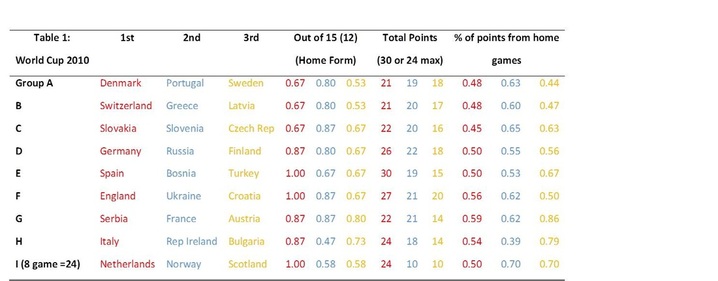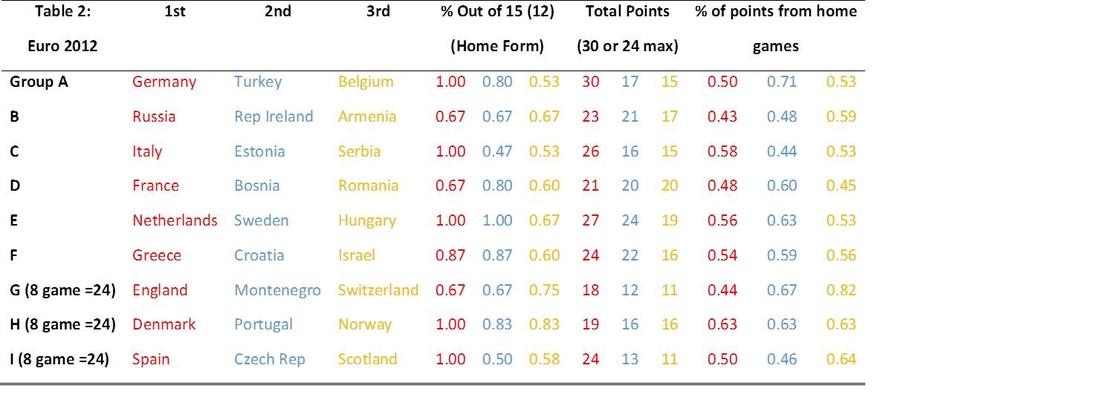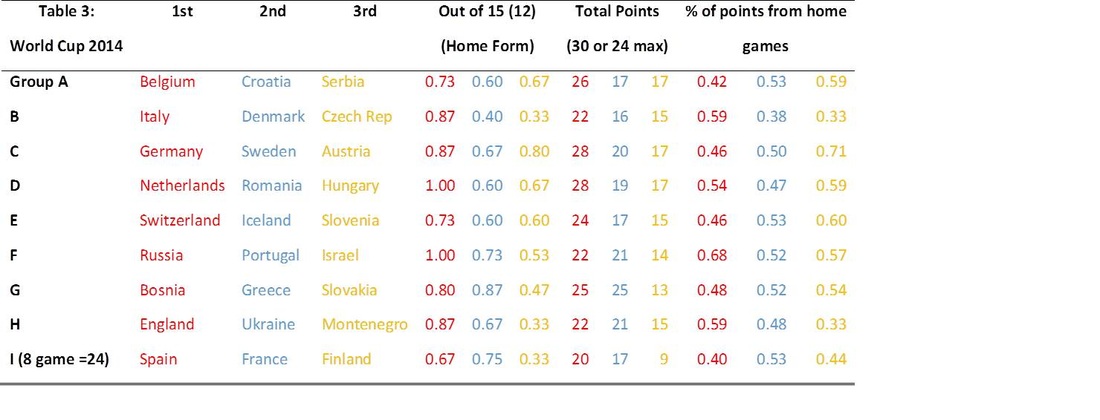In just over two months’ time, the Republic of Ireland face Poland in what journalists, pundits, players, managers, and fans will no doubt state as a must win game. Anyone who has followed the fortunes of the “Boys in Green”, particularly over the last decade or so would be aware when it comes to beating a team ranked higher than us at home, our results haven’t been too impressive. Bar beating Slovakia under Steve Staunton in 2007 at Croke Park, the last competitive victory against a higher ranked nation was the 1-0 defeat of the Dutch in 2001. Given this history, it is within reason to understand why some may be pessimistic in regards to Ireland defeating a very impressive Polish team.
However, does strong home form matter when it comes to qualifying for major tournaments? Do teams who fail to collect the majority of their points from home games, still qualify? With this in mind, data has been collected for qualifying campaigns, in Europe ranging from World Cup 2010 to World Cup 2014. Given the expansion of the 2016 European Championships to 24 teams, data will only be examined for teams who finished first, second or third in the last three qualifying campaigns (two World Cups and one European Championship). Before the analysis begins it should be kept in mind prior to the expansion of the European Championships, only teams who finished in the top 2 would either, qualify, or have a chance of qualifying via play-off. This was the same for the World Cup also. So in theory when it came to a team looking to finish third in their group there was little incentive, bar a positive effect on seeding for the next qualifying tournament. Table 1, 2, 3 examine the points accumulation for the teams who finished first, second, and third in the last three qualifying campaigns.
A number of teams who finished second and third during these three campaigns had extremely impressive home records, yet still finished behind teams who didn’t perform as well as home. For instance, qualifying for WC 2010 (Portugal, Greece, Slovenia, and France), Euro 2012 (Republic of Ireland, Bosnia, Croatia, and Montenegro) and WC 2014 (Greece, and France) either matched or bettered first place teams home record, yet still finished behind them. This phenomenon was the same for certain teams finishing second and third. Moreover, there are cases of certain teams finishing third even though they matched or bettered the first placed teams points accumulation (see Slovakia and Czech Republic, 2010; Russia and Armenia, 2012; England and Switzerland, 2012).
Collecting as many points as possible from home can aid in qualification, however, there are quite a number of exceptions to the rule. When it comes to the argument of a strong home record to ensure qualification, or at least reaching a play-off, there is no greater exception to the rule then the Republic of Ireland. Although going unbeaten for the entire campaign under Giovanni Trapattoni, only 39% of Ireland’s total points came from home games. Out of all teams who finished in the top three during the 2010 World Cup qualification campaign, Ireland’s home record was the poorest in regard to collecting the maximum number of home points available.
Similarly for the European Championship campaign it was Ireland’s away record which helped them secure second. Only 48% of their total points came from matches at the Aviva Stadium. Honourable mentions should be made to the likes of Russia, England (both group winners) and Estonia and Czech Republic (runners up) who performed much better on the road then at home, even better then Ireland. Even for the last World Cup qualifying campaign there are numerous examples of teams preforming much better away from home. So although home form can matter, a strong away record can be just as good. Can Ireland do it again? A nation holds its breath.



 RSS Feed
RSS Feed